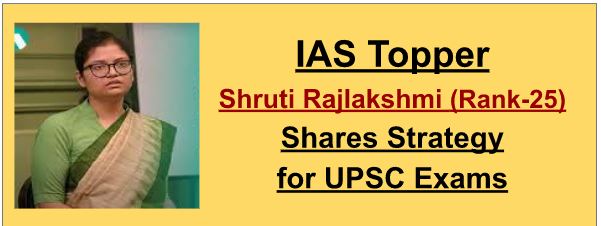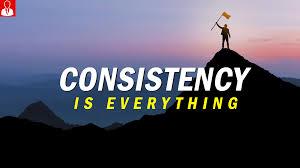
(Success Story) UPSC 2021 TOPPER, AIR-25 Shruti Rajlakshmi Share Strategy To Crack UPSC Exams
Shruti Rajlakshmi has secured the 25th rank in the UPSC Civil Services Examination, 2021. She is a native of Ranchi. It was her second attempt. She had given her first attempt when she was in the last semester of her college, but couldn’t even qualify for the prelims exam because of lack of preparation. Shruti relied more on self study and did not join any coaching institute for the preparation of the UPSC exam. During an interview by the media she said, "She wants to work to connect tribal products with new technology and also wants to work in the field of health. She believes that the village people should also get the benefits of development and more work is needed to ensure that all government schemes reach them".
EDUCATIONAL BACKGROUND AND HER UPSC JOURNEY
She did her schooling from Jamshedpur and completed her Intermediate from New Delhi. After that she completed her graduation in Computer Science from IIT BHU Banaras in the year 2019. After graduation, she was working in a corporate company at a lucrative salary. Later she decided to quit her job and prepare for Civil Services, one of the toughest examinations in the country. She chose Anthropology as her optional subject.
SHRUTI RAJLAKSHMI'S UPSC PREPARATION STRATEGY
CHOOSE THE OPTIONAL SUBJECT CAREFULLY
Shruti advised the aspirants to be wise while choosing your optional subject. Wrong choice of optional subject plays a major role in being unable to clear UPSC Mains exam. She said, the interest that you have in a subject is one of the criteria that should be given primacy. Other important aspects for choosing the right optional include having enough study materials and proper guidance from seniors and teachers.
CONSISTENCY IS KEY
Shruti said, it doesn’t matter what you can do in a day, long term success comes from things that you can do everyday consistently. When consistency breaks, we fall off the track. Set daily, weekly and monthly goals. Go easy on yourself. In the long run, doing 2 hours of study is better than doing nothing. Gradually, build that up to 10 hours of study. It may take 1, 2 or 3 weeks or even a month. Shruti said,
She also made a strategy that was unique to her own strengths and weaknesses.

USE OF SOCIAL MEDIA
She said balancing studies with the use of online platforms is very important for better performance. She restricted herself from social media, and took the help of the internet when she had a doubt to clear. She said, if you do not have control over yourself, and then stay away from mobile phones during preparation. It is not that work cannot work without a mobile.
ADOPT THE RIGHT WAY OF REVISION
Shruti advised the aspirants revise daily, in smaller slots twice or thrice in a day and also allocate revision slots subject wise. When you start to allocate exclusive revision slots to similar subjects, recall and retention become a lot easier to achieve. You must take multiple mock tests. When you give a Mock test, you will not only realize your present level of growth, but also get an opportunity to manage time and stress of the examination before the D-day arrives.
At last Shruti advised the aspirants to practice self evaluation. Ask yourself what you are doing today is getting you closer to where you want to be tomorrow.
Shruti wishes you all the best. Good luck.
Own your dream.

© IASEXAMPORTAL
CLICK HERE TO DOWNLOAD UPSC TOPPERS NOTES